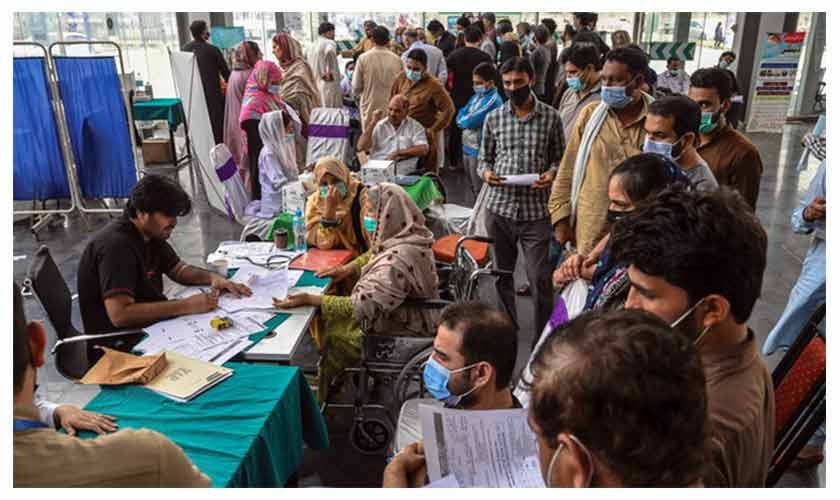**Mental Health: A Basic Human Right with Barriers to Access**
Mental health is a basic human right for all people, according to the World Health Organization. Everyone, wherever they are and whoever they are, has the right to standard mental health care. However, access to mental health services remains unequal globally. This disparity is attributed not only to stigma but also to geographical location and neglect.
In theory, every person has the right to mental healthcare, but in practice, many cannot even afford the bus fare to get to a psychiatrist, let alone the cost of treatment. There are many barriers to accessing mental healthcare services: stigma, fear of being judged, and embarrassment. Beyond these, one major reason is the cost of treatment. When someone suggests seeing a psychiatrist, many may nod in agreement, but fewer actually follow through. This highlights that the reason lies deeper than stigma and ignorance. This factor often goes unspoken but is very real.
—
### The Current Landscape of Mental Health Services
In the United States, only 47 percent of those needing mental health services received them in 2021. The shortage of mental health professionals is a critical issue, especially in rural states where psychiatrists are often unavailable. Specialized professionals such as child and adolescent psychiatrists and geriatric psychiatrists are also limited in number.
In countries like Bangladesh, Nigeria, and Kenya, there are fewer than one mental health professional per 100,000 people. According to the World Health Organization’s Mental Health Atlas 2020, there are around 800 psychiatric units in general hospitals worldwide, with a total of 2.1 beds per 100,000 population. While outpatient psychiatric facilities exist, only 1 percent provide child and adolescent mental health services.
Notably, 51 percent of psychiatrists work in urban areas within private facilities, limiting access primarily to city dwellers. About 45 percent work in the public sector. For example, Pakistan currently has only 900 psychiatrists for its population of 255 million. This shortage affects access to care in both developing and developed countries.
Specialized centers addressing child, adolescent, geriatric, and addiction-related issues are few. Additionally, the concentration of mental health services in urban areas makes it even more difficult for those in rural regions to access care.
—
### Hidden Costs of Mental Health Care
A study published in 2025 revealed that many patients with mental illness do not seek help due to financial burdens. Patients in rural areas face significant challenges in accessing psychiatric care due to costs associated with transport, lost wages, and long waiting times.
These hidden expenses seldom appear in official records but weigh heavily on families already struggling to cope. People often travel from far-flung areas to hospitals for regular check-ups. The long waiting time compounds the burden, as public sector outpatient departments are usually very busy.
In some public hospitals, approximately 300-400 patients visit daily, with each psychiatrist assessing an average of 50 patients per day. This high patient load affects the provision of adequate care.
For rural patients, the intersection of financial hardship and mental health challenges further aggravates distress. Even when help is sought, the availability and cost of medication pose additional barriers, leading some patients to discontinue treatment due to non-affordability.
A survey showed that of those accessing mental healthcare in the past year, about 12 percent spent more than 20 percent of their family income on treatment. In Pakistan, psychiatric facilities are concentrated in major cities, with single facilities responsible not only for urban populations but also vast adjoining rural and peri-urban areas. This results in immense strain on resources and accessibility.
Private mental health facilities, being costly, remain out of reach for the majority of the population in low- to middle-income countries like Pakistan.
—
### The Human Cost of Unaffordable Mental Healthcare
What happens when mental healthcare is unaffordable? Depression deepens, anxiety worsens, and functionality declines. The burden extends beyond patients to impact their families, creating cycles of poverty and despair.
Economically, untreated mental health conditions cost billions in lost productivity. In countries like Pakistan, this adds significantly to social and economic challenges.
—
### Innovation and Hope
Despite these difficulties, there is hope. Numerous community-based programs are making strides to improve mental health services.
– **The Thinking Healthy Programme** in Pakistan aims to improve the health of mothers and children.
– The **WHO Parent Skills Training Programme** was delivered to volunteers in rural Pakistan to help them understand developmental disorders.
Mental health awareness is also increasingly being raised via radio, television, and social media platforms.
During the COVID-19 pandemic, Pakistan hosted its first mental health coalition, bringing together organizations to formulate strategic plans and national advocacy efforts.
Moreover, the Ministry of Planning, Development, and Special Initiatives launched a multilayered and digitalized mental health programme to foster intersectoral collaboration and reduce service gaps.
—
### What Must Change?
To improve mental health access, several changes are necessary:
– **Increase the number of mental health facilities** nationwide.
– Place greater emphasis on expanding **postgraduate training centers** to boost the number of qualified mental health professionals.
– Strengthen **rural healthcare infrastructure** and incorporate mental health services within it.
– Expand **tele-mental health services** to provide affordable care in underserved and remote areas.
Mental health services should be affordable, decentralized, and integrated into primary healthcare. Scaling up community-based models such as the Thinking Healthy Programme, along with tele-mental health, can bridge both economic and geographical gaps.
Access to mental health is not solely about acceptance or awareness; affordability is equally crucial. Without affordable care, many will remain silent and untreated.
—
### Conclusion
Mental health is a fundamental human right and must be accessible to all. Supporting mental health care via public funding and compassion-driven policies is essential to building healthier societies. By addressing financial, geographical, and professional barriers, we can ensure mental health care reaches those who need it most.
—
*Published by [Your Site Name]*
https://www.thenews.com.pk/tns/detail/1350041-affording-care



